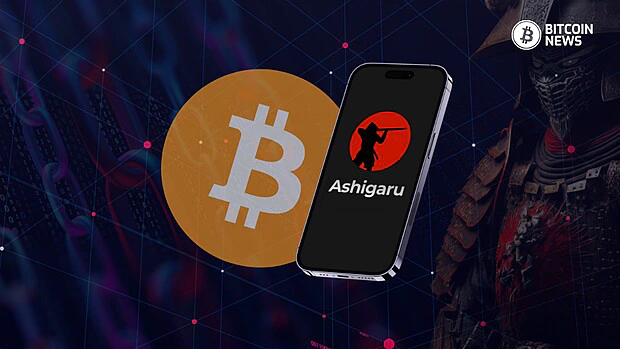In the world of Bitcoin, privacy has always been a critical concern. For years, Samourai Wallet stood as one of the leading tools offering users secure and private Bitcoin transactions.
However, the wallet’s journey took a sharp turn in April 2024 when the U.S. government arrested its founders on charges of money laundering and operating an unlicensed money-transmitting business.
As authorities seized Samourai Wallet’s servers and removed the app from stores, many believed this was the end of the line for the privacy-focused wallet. But from the ashes of this shutdown, a new project has emerged: the Ashigaru Open Source Project.
On September 20, 2024, a mysterious group of developers, identifying themselves as former Samourai Wallet users, announced the launch of Ashigaru.
This project is a direct fork of Samourai Wallet’s code, designed to continue the mission of providing secure and private Bitcoin transactions.
Ashigaru’s developers are committed to ensuring that anyone can engage in “peaceful, voluntary, and private commerce on the internet without tracking, surveillance, or censorship,” according to the project’s website.
Forking a project involves taking the original software’s codebase and creating a new version of the program.
In the case of Ashigaru, this means using the foundation laid by Samourai Wallet to build a new platform that remains open-source and self-custodial, allowing users to retain control over their funds and transactions without relying on centralized servers.
Ashigaru’s developers have set out with clear goals. They emphasize the importance of privacy, a value deeply embedded in the Bitcoin community.
To achieve this, Ashigaru incorporates privacy-enhancing technologies like CoinJoin, a feature designed to obscure the origins and destinations of Bitcoin transactions.
CoinJoin combines multiple transactions, making it difficult for outsiders, such as blockchain analysis firms, to trace who is sending and receiving funds.
Related: The Ethics Of Mixing Bitcoin
According to the Ashigaru team, they want their solutions to be accessible to everyone, even those who aren’t tech-savvy. This low barrier to entry is key to ensuring that privacy-focused tools aren’t just for the technically skilled but for all Bitcoin users.
The Ashigaru project’s rise is directly tied to the legal downfall of Samourai Wallet. In April 2024, Samourai’s founders, Keonne Rodriguez and William Hill, were arrested by U.S. authorities.
The Department of Justice accused them of facilitating more than $2 billion in unlawful transactions, including over $100 million in money laundering. These charges came after a prolonged investigation, as the FBI seized Samourai Wallet’s servers and shut down its website.
Following the arrests, many users of the privacy-focused Bitcoin wallet were left without access to their preferred tool. This left a significant gap in the market for private, censorship-resistant Bitcoin wallets, one that Ashigaru now hopes to fill.
Despite the legal actions against the original developers, Ashigaru’s team insists that they have no connection to Samourai Wallet’s founders. Instead, they see themselves as former users of the wallet who are passionate about maintaining the privacy standards that Samourai stood for.
As part of the open-source community, they have utilized publicly available code to create their new project.
Forking, as seen with Ashigaru, is common in the open-source world.
When an original project faces difficulties, such as legal troubles or technical challenges, other developers can step in to create a new version of the software. This is exactly what has happened with Ashigaru.
“Ashigaru is a self-custodial, open-source and secure bitcoin wallet that is private by design,” the project’s website explains. The platform also emphasizes the importance of Dojo, a feature that allows users to run their own full Bitcoin node and wallet server.
This eliminates the need for centralized servers, giving users even greater control over their transactions.
While Ashigaru’s developers are focused on continuing the fight for privacy, they face significant challenges. The legal actions against Samourai Wallet’s founders highlight the increased scrutiny placed on privacy-enhancing technologies in the Bitcoin space.
Governments and regulatory bodies around the world have begun cracking down on tools that allow individuals to conduct transactions anonymously, viewing them as potential enablers of illegal activities.
Related: Senators Urge DOJ to Halt Crackdown on Bitcoin Privacy Tools
However, the Ashigaru team remains determined. They believe that privacy is a fundamental right, and they are committed to developing tools that protect it.
As they state on their website, their mission is to create solutions that allow people to conduct business online without fear of being tracked or censored.
Ashigaru is still in its early stages. The developers have released the first version of the mobile wallet and are continuing to refine the platform. As the project grows, it will need to balance user privacy with the complex regulatory landscape that surrounds Bitcoin.
The community will be watching closely to see how Ashigaru evolves. Will it succeed in filling the void left by Samourai Wallet? Can it attract a significant user base and withstand the legal challenges that come with offering privacy-enhancing tools? Only time will tell.
For now, Ashigaru stands as a testament to the resilience of the open-source community and the ongoing demand for privacy in the Bitcoin space.










